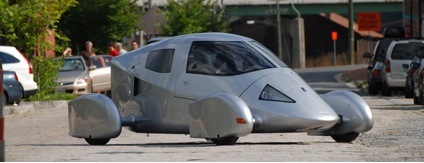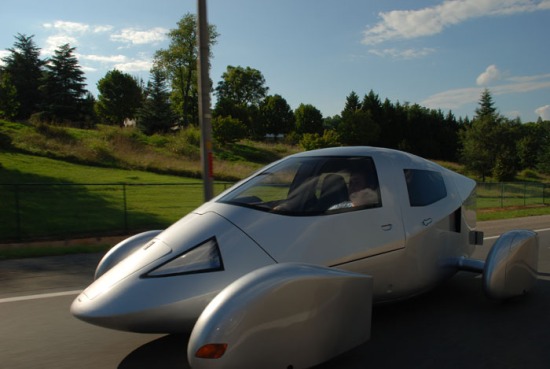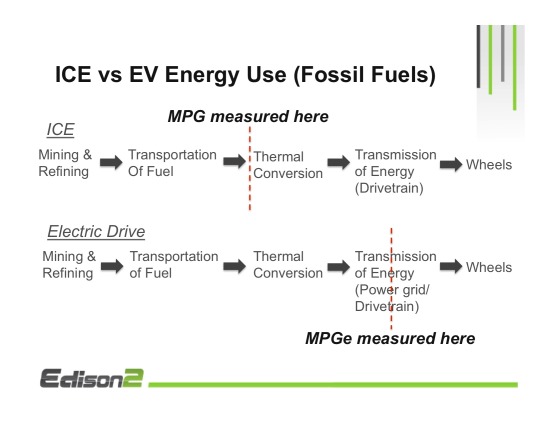The Electric Very Light Car
Edison2 won the X Prize with an internal combustion engine, emphasizing the efficiency of the platform (light weight and low drag) rather than the choice of powertrain. But we knew that the virtues of our Very Light Car would be significant with an electric drive.

So in 2011 Edison2 decided built an electric Very Light Car. Ron Cerven, who led the Li-ion team to an Alternative Class X Prize Victory with the 189 MPGe Green Wave, joined the Edison2 team. Off the shelf batteries, motor and controller were installed in a VLC prototype, which was tested at Roush Laboratories last October.
The result? A new EPA fuel economy record, according to Consumer Reports. The most efficient 4-person electric car on the planet, we believe. And perhaps the technology that enables widespread adoption of EVs.
The reason is simple. Through light weight and low aerodynamic drag the VLC requires very little energy, which means a small battery pack (10.5 kWh, compared with the Nissan Leaf’s 24 kWh) and a short recharging time. In fact, the eVLC can completely recharge in less than 7 hours from any ordinary 110V outlet, and has a 100+ mile range.

In the EPA 5-cycle test our eVLC is rated at 245 MPGe. For comparison, the Nissan Leaf is rated at 99 MPGe. Using the X Prize metrics, which did not include air conditioning, cold weather and aggressive driving, the eVLC is rated at 350 MPGe, compared to 104 MPGe for our X Prize car.
Is an electric drive really that much better than an internal combustion engine? We do not think so. A big part of this difference is in the accounting. Rating an internal combustion engine takes into account the generation of energy from burning the fuel (thermal conversion); rating an electric car only measures the amount of electricity used, ignoring the inefficiencies associated with generating the electricity. This is illustrated in the following chart:

Electric cars are an important part of our future. They rely on domestic energy, not foreign oil, and with today’s prices are significantly less expensive to operate. They can use locally generated electricity, such as a garage solar collector.
But for widespread adoption electric cars need to be practical, affordable and have realistic range. Edison2’s platform efficiency can solve these issues, so that as the electric grid becomes sustainable, so does personal transportation.

